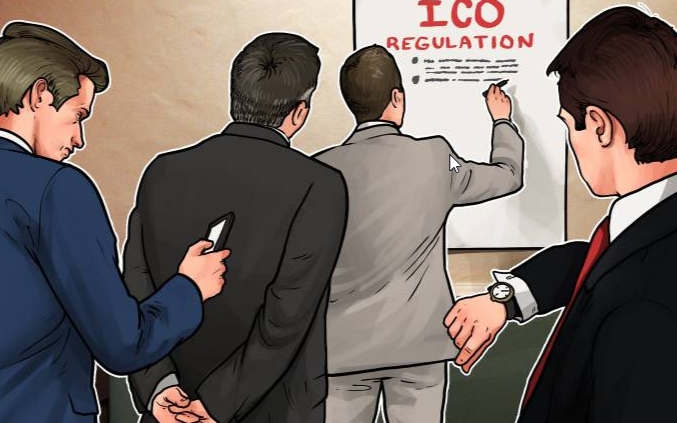
In a hearing at the US House of Representatives on Thursday, April 26, a regulator from the US Securities and Exchange Commission (SEC) and House Financial Services Committee members hotly disagreed over whether a “balanced approach” could be taken in regulating Initial Coin Offerings (ICOs).
At the start of the hearing, entitled “Oversight of the SEC’s Division of Corporation Finance”, William Hinman, the director of the SEC’s Division of Corporation Finance, said that the area of digital assets and ICOs “continues to evolve”:
We are striving for a balanced approach, and one that ensures capital formation while maintaining a strong focus on investor protection.”
One purpose of the hearing was to discuss possible reasons for the declining number of Initial Public Offerings (IPO) in the country. Committee member Bill Huizenga asked Hinman if ICOs could be a solution to this decline, and whether all ICOs must be regulated.
In response, Hinman said that “in theory, there is a time when a coin may achieve a decentralized utility in the marketplace, or […] there may be coins where that lack of a central actor may make it difficult to regulate.”
Hinman followed previous comments from SEC chairman Jay Clayton that most ICOs should be considered securities. According to Hinman, the SEC would be consulting with entities releasing tokens to verify that the offerings were either regulated or not qualified as securities.
Committee member Brad Sherman (D-CA) disagreed with the idea that ICOs could replace IPOs, as an IPO “provides jobs in the real economy,” and ICOs do “the opposite”:
It takes money out of the real economy, it takes people willing to invest and risk, and says ‘don’t use that ability to risk, don’t use those animal spirits to help create a job for a person who needs one, let alone build a factory for thousands, sit there and trade back and forth in the ICO.’”
Sherman then asked why ICOs haven’t been “stopped,” noting that the “balance” mentioned by Hinman will negatively affect the economy:
When you strike a balance between those who are trying to create a new currency to facilitate drugs, tax evasion, to deprive the Fed of its ability to market our securities and return 100 bln dollars or so to the US treasury, all the balances are for total investor protection, which could be achieved by totally banning.”
Sherman said of the decentralized nature of ICOs:
Charlatans and scammers have always favored decentralized new enterprises.”
Committee member Tom Emmer (R-MN) took a different approach, saying that there “is a lot of of ignorance about how special this area is”, he continued:
The typical attitude too that I get from so many elected officials is that have no idea what they are talking about […] everyone who is participating in [an area they don’t know] is either bad or dishonest, and an official must rush in and help people .”
The SEC and the Commodity Futures Trading Commission (CFTC) held a cryptocurrency hearing in February of this year. They reached the conclusion that ICOs need the most amount of oversight, digital ledger technologies (DLT) like Blockchain the least, with virtual currencies like Bitcoin (BTC) falling somewhere in between.
